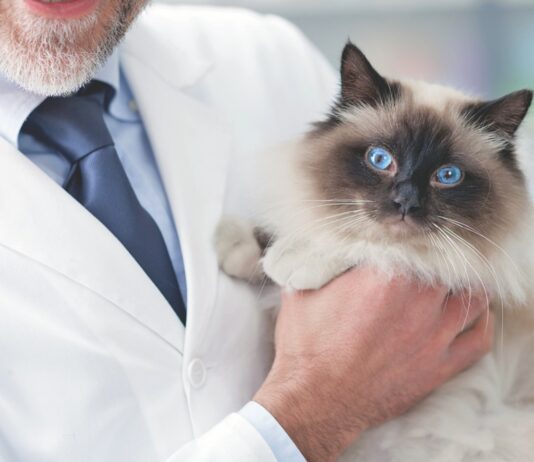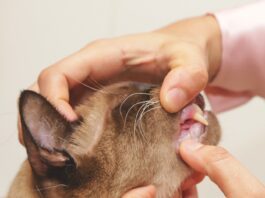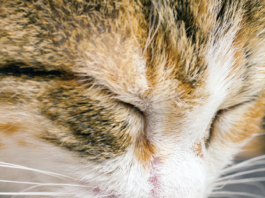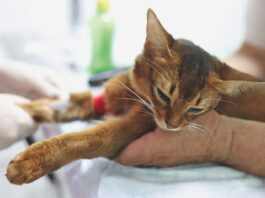Do FIV Testing Before
Questions still surround testing for feline immunodeficiency virus (FIV). FIV, or feline AIDS, is caused by a retrovirus like feline leukemia virus. Its found in 1.5 to 5 percent of apparently healthy cats.
Screening Tests and Bloodwork
Advances in veterinary medicine have enabled our feline friends to live longer, healthier lives, and these are not just improvements in treatments. Technology has pushed screening and prevention to the forefront, so disease can be headed off before it gets a stronghold. Some screening tests are recommended before you bring your cat or kitten home. Like any new thing, you may find yourself wondering, Are they all necessary?
First-Aid for Shock
At the most basic level, shock is when something causes the body to shut down and fail to function properly. This is largely due to malfunctions in or damage to the circulatory system leading to low blood pressure, which makes it difficult to get sufficient oxygen to the tissues.
Landlords Must Check for Pets
A new law signed into legislation in New York state requires law-enforcement officials to check for pets who may have been abandoned by the renters and left behind when enforcing an eviction notice to renters.
Why Not Give Itching Cat Steroids?
We recently adopted a 6-year-old male domestic shorthaired cat that was receiving steroid shots every six months when we got him, but our veterinarian opted not to give him this shot when we first brought him in, and now he is scratching all the time and has licked all of the hair off of his belly. Can you give us some advice about how we can help this boy?
Nutritional Power for Senior Cats
The challenge with senior cats is that their digestive systems often dont function as efficiently as when they were young. On top of that, just like older humans, geriatric cats may not digest or absorb nutrients as well as when they were in their prime. Keeping your older cat well-nourished just takes some attention to ensure that she is eating and that the food youve chosen addresses the nutritional issues an aging cat faces.
Potential Deadly Feline Calicivirus
Feline calicivirus (FCV) is found in up to 40 percent of cats. It commonly causes a self-limiting upper-respiratory infection, but a rare, virulent strain can cause fatal inflammation of the liver, intestines, pancreas, and cells that line the blood vessels.
Appropriate Scratching
Punishment doesnt stop cats from scratching things. Its like yelling at a cat for doing something as natural as grooming, says Dr. Bruce Kornreich, CatWatch Editor-in-Chief and associate director of the Feline Health Center. Instead, be smarter than the cat. Give her an appropriate, comfortable, sturdy scratching surface, such as flat horizontal scratchers, and toys covered with sisal rope, fabric, or cardboard. Sprinkle some catnip on the surface to attract her attention. Once shes interested, its time to place possible deterrents where you dont want scratching. Here are five tricks that can work:
Feline Lymphoma
Lymphoma is the most common feline cancer. Over the years, however, with increased testing and vaccination for retroviruses like feline leukemia virus (FeLV) and feline immunodeficiency virus (FIV), the exact type of lymphoma seen in cats has changed.
When That Bite Abscesses
Your sweet, peace loving feline companion sneaks out between your legs as you take the trash out. Despite searching, there is no sign of her, so you are thrilled to hear her meowing at the door the next morning. She fusses a bit when you pick her up, but you figure she is just upset at being out all night.
Hip Replacement
When a two-year-old Bengal cat started to have left-hip problems in 2017, Purdue Veterinary Medicines Veterinary Teaching Hospital performed a femoral head ostectomy (FHO), which involves removing part of the femur bone and has been done for decades. A year later, the right hip started to give the cat trouble. The owner returned to Purdue, but this time the veterinarians decided to perform the first feline hip replacement.
Cornell Places First Spinal Pin
13-year-old feline became the first cat in the United States to receive a surgical spinal technique that involves placing a metal pin in the spine for spinal compression.















